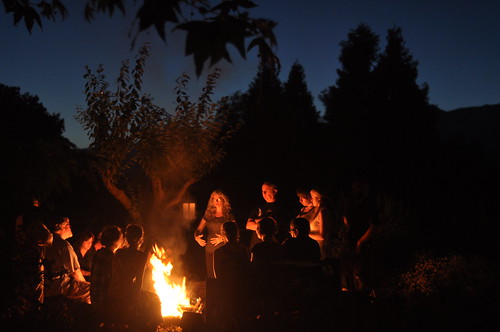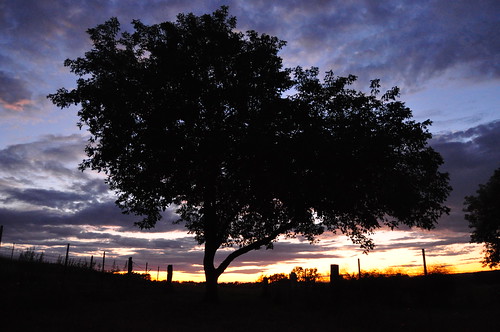I am uncompromisingly pro-gay marriage and I am unapologetic in my affirmation of LGBT equality. This is one issue that I refuse to compromise on, and because of this, it has gotten me in trouble in the past. One church that it did get me in trouble with was my local Presbyterian Church USA congregation. The congregation and presbytery I was a part of were and are socially conservative, but I was a flaming liberal. Naturally, I found myself in some serious disagreement, and it didn’t help that I was a universalist, pacifist, and straight up commie-pinko. While the local Presbyterian community did not appear very welcoming, I am happy to see that the PCUSA has recently become fully LGBT-affirming at the national level.
Now that this has happened however, I am seeing the same old arguments from my conservative brethren that I have heard over and over again. It happens whenever any Christian denomination becomes welcoming and affirming, and I see the battle lines being drawn in the Mennonite Church as well. This is especially the case in Pittsburgh, because Pittsburgh Mennonite Church just became officially LGBT-affirming, and even lost their pastor because of it. I remember mentioning my uncompromising position on this issue to the local Mennonite conference minister as well, and I think I saw her cringe. If I remember correctly, she said that might be a problem at some point, but whatever.
The main argument that I see from conservatives on this issue is that gay marriage is somehow against the clear teaching of the Bible. Whenever we become open and affirming in our Christian faith, it is because we are ignoring the authority of the Bible. Guess what, I am not open and affirming in spite of the Bible, but because of it! (more…)
KevinD
June 20, 2014
Church, Current Events, Emerging Church, Interpretation, LGBTQ, Mennonite Church USA, Social justice, The BibleBible, Church, Evangelical Christianity, LGBT, Mennonite, Pink Menno, Politics, Progressive Christianity, Social justice
Read more >
Recently, I started rereading Paul’s First Epistle to the Corinthians. It’s been a long time since I have read Paul, and the last time I really read him, IÂ spiritualized him. By that, I mean that I made Paul’s words the words of an Anglo-Saxon Puritan. Coming from a Protestant (Reformed) background, it is really easy to see Paul’s talk of election in the meaning Calvinists give to it, and it is easy to see Paul as some modern German theologian in the tradition of Martin Luther. I was easily able to look at the material, political, and societal implications of Jesus’ teachings, but Paul was harder for me, due to that connection with Reformed Protestantism.
Going into First Corinthians anew, I learned that Paul’s epistle was written to a very special community of believers. Corinth was a deeply Roman and deeply cosmopolitan city. It was really the entire Greco-Roman world present in one place. This means that the Corinthian church was diverse, and part of that diversity involved Paul having converted both rich and poor, elite and common. The division of rich and poor in the Corinthian church was one of the reasons Paul wrote the letter. For example, in 11:17-34 we see Paul rebuking those were were treating the poor unfairly in communion. A passage that is particularly important in discussion these class relationships is 1 Corinthians 1:26-2:5: (more…)
KevinD
March 14, 2014
Class, Economics, Education, Privilege, The Bible1 Corinthians, Class, Kingdom of God, poor, rich
Read more >
I recently wrote about Romans 13 and the state. I mentioned that I did not believe that text was even about the Roman government. I believe, based upon the evidence I have seen, that Romans 13 talks about reconciling Jewish and Gentile Christians in relation to the religious, community authorities. Tyler Tully picked up on this and wrote a far more detailed analysis of this here and here, which I strongly recommend reading.
Today, another questionable text in regards to the New Testament and the state has been brought up, this time from Peter instead of Paul:
Be subject for the Lord’s sake to every human institution, whether it be to the emperor as supreme, or to governors as sent by him to punish those who do evil and to praise those who do good. For this is the will of God, that by doing good you should put to silence the ignorance of foolish people. Live as people who are free, not using your freedom as a cover-up for evil, but living as servants of God. Honor everyone. Love the brotherhood. Fear God. Honor the emperor. (1 Peter 2:13-17 ESV)
This passage is a bit different than Romans 13. Unlike Romans 13, this passage is pretty straightforward. Romans talks about vague authorities, the sword, and taxes, and it is surrounded by teachings on religious instruction and ethics. Simply put, Romans requires a lot of unpacking in addition to looking at possible translation errors. On the other hand, this passage from 1 Peter is pretty much independent, and any issues in our reading of the text would primarily originate from possible translation errors. (more…)
KevinD
February 12, 2014
Anabaptism, empire, Interpretation, neo-Anabaptism, patriotism, Politics, Power, President, The Bible1 Peter, empire, Jesus, kingdom, Peter, Romans 13, the state
Read more >
N.T. Wright recently had a Q and A session on his Facebook page, and he responded to this question:
What would Paul say to a Christian serving in the military?
Wright’s response can best be summarized by these two statements:
This is again straight Romans 13: God wants there to be human authorities, but they are answerable to him.
It is therefore appropriate in principle for a Christian to serve in such a force [the state], basically an extension of police work.
(You can read the full response here.)
In reaction to this, Kurt Willems wrote a response showing where he disagrees. Kurt, in classical Anabaptist fashion, believes that Christians should be nonviolent, but that the state still serves a purpose. There is a separation of church and state, and the state is a necessary evil.  (more…)
(more…)
KevinD
January 24, 2014
Anabaptism, neo-Anabaptism, Nonviolence, The Bible, Theologyd Christian Anarchism, Kurt Willems, N. T. Wright, Romans 13, the state
Read more >
When I began looking for an Anabaptist congregation, I was immediately drawn to the San Antonio Mennonite Church here in the Alamo City. Truth be told, I probably would have stayed within our house-church if it weren’t for the fact that many of our families were moving. But as necessity compelled me to search for a tribe, the Anabaptist emphasis on Jesus discipleship, servant minded non-violence, and its history of persecution welcomed me. I’m glad we found a home in the MCUSA.
Having grown up as the son of an ordained minister in the Southern Baptist Convention, I was frightfully aware of the denominational politics our family encountered having served under two SBC Presidents. But Anabaptism offered more than that, with less, or so it seemed.
Theda Good’s recent ordination seems to have served as a sort of catalyst in the ever growing divide between the young and old, urban and rural MCUSA membership. But from my location, these reactionary reverberations seem to find their epicenter on the conservative side of the aisle while the almost certainly inevitable LGBTQ ordination seems to originate on the progressive side. Regrettably, I feign to even use the binary language associated with progressive versus conservative politics, but it seems that such language indicates that we have already bought in to the us vs. them mentality that dominates our American culture.
What about the Third Way?
I’m perplexed as to why we’re having this conversation in the first place. Looking at arguments from “both sides,” I keep asking myself, “where is Jesus in this?” I see Jesus in the calls for humility and servanthood. I see Jesus in the cautionary language encouraging dialogue instead of schism. But I don’t see Jesus in the Soddom and Gommorah rhetoric, and neither do I see it in the practice of ordination.
(more…)
TylerT
January 3, 2014
activism, Anabaptism, Bigotry, Church, Class, culture, Current Events, empire, Exclusion, Faith, Gender, Leadership, LGBTQ, Mennonite Church USA, neo-Anabaptism, Privilege, Race, Schism, Sexism, Social justice, The Bible, Tolerance, Tradition
Read more >
Crossposted from A Bible and a Bat’leth
Sermon preached on May 5, 2013 at Mississauga Mennonite Fellowship. In my introduction, I acknowledge the land and the many nations who have used, shared and lived on it since time immemorial, especially the Mississauga people. I introduce Christian Peacemaker Teams Aboriginal Justice Team and thank the congregation for inviting us to speak.
The following scripture texts have already been read: Genesis 11:1-9 and John 8:31-43
In her 2009 TED talk, entitled The Danger of the Single Story, the Nigerian writer Chimamanda Adichie, starts by identifying the stories she read as a child. Growing up in Nigeria, she began to read early on, and she read the books she could get; British and American children’s books. At the age of seven she began write her own stories.
“All my characters were white, blue eyed. They played in the snow. They ate apples. And they talked a lot about the weather. How lovely it was that the sun had come out. Now this despite the fact that I lived in Nigeria, had never been outside of Nigeria. We didn’t have snow, we ate mangos, and we never talked about the weather because there was no need to.”
The stories she read as a child only featured foreigners, so she wrote about foreigners, without even thinking that literature could be about Nigerian children until she encountered Nigerian writers.
Later, attending University in the USA, her roommate is surprised that she speaks English so well, that she knows how to use a stove. When she asks to listen to some of her tribal music, the roommate is disappointed to be given a cassette tape of Mariah Carey.
(more…)
PeterH
July 15, 2013
bioregionalism, Civilization, Indigenous, Peace & Peacemaking, Stories, The Bible
Read more >
I was not raised in the Christian religion. Like many from the First World, I was raised in a Christian culture, but I was not raised in the church or with a knowledge of the Christian religion. I spent most of my childhood as an agnostic with some Buddhist flavor, and when I was exposed to the Bible, it was through a children’s storybook. As a result, I associated the Bible with fairy tales. This would eventually come to change as I felt the desire to actually study religion. Part of it due to my brother’s influence.
My brother was like me. He was not raised in Christianity, but later converted to it as a teenager. He originally came to Christ through the Pentecostals, then he became an Evangelical. It was when he was attending an Evangelical Free church that I first came to truly appreciate Christianity again. It was also during this time that I got my first Bible, which was the New Living Translation. I did not believe in Christianity during this time, but it was something interesting to study and do on the weekends.
One thing that I learned from Evangelical Protestantism was that everything is personal and private. We are supposed to have a personal relationship with Jesus. We are supposed to personally convert to Christianity, and salvation was all about personal redemption from sin and death. Even the Bible was to be read and interpreted privately. Even in economics, Evangelicals tend to stress capitalism and enterprise over community and charity. Then, I began to study Catholic theology, and I started to use a New American Bible.
(more…)
KevinD
May 3, 2013
Anabaptism, Church, Community, Emerging Church, Interpretation, Roman Catholic, The Bible, Theology, TraditionAnabaptist, Bible, Catholic, Community, Theology, Tradition
Read more >
Cross-posted from As of Yet Untitled
It’s been less than 24 hours sine the tragic shooting this Sunday in Wisconsin. We grieve for all the victims, their family and their communities. The LA Times is reporting that the gunman had tattoos and biographical details which lead officials to conclude he had a “political agenda”. While we don’t know for sure what that political agenda is, the attack does fit a pattern that in which Sikhs have been mistaken for Muslims in attacks by Islamophobic extremists since the 9/11 attacks.
This is another opportunity for Christians in the US to reflect on our response to the ugly Islamophobia that bubbles just beneath the surface and spills out in attacks against all people that appear Middle Eastern.
There would plenty of examples I could cite, but the prominent Christian leader Franklin Graham exemplifies this anti-Muslim trend. From 2002 through 2011, Graham has consistently made comments that stoke fear and paranoia towards Muslims in the US, saying that Islam “preaches violence” (2002) and is “evil” (2009). Last year he offered this:
“The Muslim Brotherhood is very strong and active in our country. It’s infiltrated every level of our government. Right now we have many of these people that are advising the US military and State Department on how to respond in the Middle East, and it’s like asking a fox, like a farmer asking a fox, “How do I protect my henhouse from foxes?” We’ve brought in Muslims to tell us how to make policy toward Muslim countries. And many of these people we’ve brought in, I’m afraid, are under the Muslim Brotherhood.”
(all quotes from Franklin Graham and Samaritan’s Purse, Sheila Musaji)
(more…)
TimN
August 6, 2012
Interfaith, Islam, The Bible
Read more >
It’s been a month since Charletta and I arrived in the Los Angeles airport direct from our time with Christian Peacemaker Teams in Colombia. Now that we’ve caught our breath, I wanted to share with you a window into our first two whirlwind weeks here in the Ojai valley working with Bartimaeus Cooperative Ministries. Charletta and I were part of preparing for and hosting the July Bartimaeus Institute entitled “Rooting Faith: Theology and Practices of Bioregional Discipleship.” I focused on documenting the week for a wider audience through photography and video. This is my first experiment in Youtube journalism. Rather than write a lot about the week, I’ll give a basic introduction and then share the videos that I created:

On the first night of the institute we gathered around the fire to sing songs and talk together at dusk (above). Aside from lodging, the event was hosted by Ched Myers and Elaine Enns in their house and their yard, which is entirely given over to vegetables, fruit trees and native plants. Mornings were spent doing Bible study and studying permaculture and afternoons were spent doing hands on learning of permaculture techniques in the garden. Evenings were practical workshops on a variety of subjects. Chris Grataski and Melissa Shank taught us about permaculture and herbalism.
(more…)
TimN
July 30, 2012
bioregionalism, Civilization, Discipleship, Permaculture, The Bible
Read more >
Love, compassion, joy, and equanimity are some of the hallmarks of the teachings of Jesus. But those concepts didn’t originate with Jesus.
He found them tucked away in the nooks and crannies of the Torah. Almost every saying in the Sermon on the Mount is a commentary on passages from the Hebrew Scriptures. The genius of Jesus was the way in which he put his own “spin” on the Scriptures, highlighting and elevating the positive aspects of God’s personality, while ignoring and rejecting the negative aspects.
The ideals of love, compassion, joy, and equanimity weren’t the unique property of the Judaic tradition, however. They could also be found earlier, and further east, in what is now India, Nepal, Bhutan. In the Fifth Century before Jesus, a man named Gotoma developed a body of teachings based on what are called “The Four Immeasurables”: (more…)
CharlieK
June 18, 2012
Anabaptism, Awesome Stuff, Change, Church, City, Civilization, communication, Community, Contemplation, culture, Current Events, Dumb Stuff., Education, End Times, Ethics, Evangelism, extinction, Foreign Policy, Global Church, God, Group Identity, History, Indigenous, Interfaith, International Relations, Judaism, Love, MCC, Mennonite Church USA, Nonviolence, The Bible, Tolerance, Urban Ministry
Read more >
 One of the most attractive features of our Anabaptist tradition is that it doesn’t take tradition too seriously. Of course, Anabaptists have their own traditions, but they can – and have been – shrugged off when necessary. That’s one of its hallmarks, saying: “Okay, this or that praxis may have been useful and good way back then, but let’s go a different way now, in the full confidence that God’s creative spirit will lead us in the footsteps of Jesus.” Some examples of traditions that Anabaptists have occasionally dumped: paid church leaders (bishops, priests, pastors)? Don’t need ’em. We’re all priests of God. Liturgy? No, it stifles creativity. Creeds and confessions? They shackle our minds and hearts.
One of the most attractive features of our Anabaptist tradition is that it doesn’t take tradition too seriously. Of course, Anabaptists have their own traditions, but they can – and have been – shrugged off when necessary. That’s one of its hallmarks, saying: “Okay, this or that praxis may have been useful and good way back then, but let’s go a different way now, in the full confidence that God’s creative spirit will lead us in the footsteps of Jesus.” Some examples of traditions that Anabaptists have occasionally dumped: paid church leaders (bishops, priests, pastors)? Don’t need ’em. We’re all priests of God. Liturgy? No, it stifles creativity. Creeds and confessions? They shackle our minds and hearts.
One of the areas where Anabaptists in the past proved more timid was in their use of Bible translation for challenging the powerful. At the beginning that wasn’t true. Luther basically copied Hans Denck’s and Ludwig Haetzer’s translation (1527) of the major prophets for his new translation. Denck was a politically engaged Anabaptist rebel: at that time translating the Hebrew prophets was considered a risky political action. It was a means of obliquely criticizing contemporary politicians and thereby fomenting rebellion. But those were the early years. Later, under pressure to defend their orthodoxy, Anabaptists held on to traditional translations – where they did offer some new emphases, it was usually in internal matters (internal church relations). (more…)
JaJaFe
March 5, 2012
Peace & Peacemaking, The Bible
Read more >
 This is the sequel to Our most bitter opponents: the Christians who fought against Dr. King and also to Oppression is Bad, Now What?. Thanks to Sharon William’s comment on The Mennonite for my title.
This is the sequel to Our most bitter opponents: the Christians who fought against Dr. King and also to Oppression is Bad, Now What?. Thanks to Sharon William’s comment on The Mennonite for my title.
As we think about what it means to be an ally and look at the continuing legacy of white supremacist Christianity, the Beattitudes in Matthew and Luke have a lot to offer us.
Too often, when we read differing version of Jesus’ words in different gospels, we try to ignore them. But I think these two passages speak deeply to beautiful, complimentary truths about the movement that Jesus invites us into.
In short, the beatitudes in Matthew focus on spiritual and emotional virtues: poor in spirit, mourning, meekness, thirsting for righteousness, mercy, pureness of heart, peacemaking and the being persecuted for righteousness.
As I grew up learning these, I thought of these as things I do on my own. It was up to me, as an individual, with God’s help to be merciful, pure in heart and meek. It might be hard, but it was fundamentally a personal struggle that God and I worked on.
It’s easy for us to look at the beatitudes and say, as the Bishop of London did, “This is just a spiritual thing. Jesus wasn’t concerned with people’s economic or political well being. All he cared about was their spiritual virtues.”
(more…)
TimN
January 31, 2012
Allyhood, Church, liberation theology, Race, The Bible
Read more >
(Revised November 2011)
The Sermon on the Mount is defined as the 40+ sayings of Jesus found in Matthew 5, 6 and 7. About half of those sayings are considered by scholars to be non-authentic (meaning they were likely created by the early church rather than originating with Jesus). Non-authentic sayings are not included here. Most Sermon sayings have parallels in other gospels (Mark, Luke & Thomas). Sometimes the parallels are in simpler form, and thus probably closer to what Jesus actually said. Listed below are 21 of the most authentic Sermon sayings, along with Torah passages that Jesus probably had in mind when formulating them. Similar sayings from other traditions are offered as well.
Luke 6:20: “Congratulations, you poor! God’s kingdom belongs to you.”
Compare to:
Matthew 5:3: “Congratulations to the poor in spirit! Heaven’s domain belongs to them.”
(more…)
CharlieK
November 13, 2011
Anabaptism, Awesome Stuff, Ethics, Fun, God, Group Identity, History, Interpretation, Judaism, Love, Mental health, Nonviolence, Peace & Peacemaking, Polemics, Pornography, Sex, Spiritual Life, Tactics, The Bible
Read more >
We are Marginal Mennonites, and we are not ashamed.
We are marginal because no self-respecting Mennonite organization would have us. (Not that we care about no stinkin’ respect anyway.)
We reject all creeds, doctrines, dogmas and rituals, because they’re man-made and were created for the purpose of excluding people. Their primary function is to determine who’s in (those who accept the creeds) and who’s out (those who don’t). The earliest anabaptists were also non-creedal.
We are inclusive. There are no dues or fees for membership. The only requirement is the desire to identify oneself as a Marginal Mennonite. We have no protocol for exclusion.
We are universalists. We believe every person who’s ever lived gets a seat at the celestial banquet table. No questions asked! Mystic-humanist (and anabaptist) Hans Denck was quoted saying that “even demons in the end will be saved.”
We reject missionary activity. Christian mission, historically, goes hand-in-hand with cultural extermination. We love human diversity and seek to preserve it. Thus, we oppose evangelistic campaigns and mission boards, no matter how innocuous or charitable they claim to be.
We like Jesus. A lot. The real Jesus, not the supernatural one. We like the one who was 100% human, who moved around in space and time. The one who enjoyed the company of women and was obsessed with the kingdom of God. The one who said “Become passersby!” (Gospel of Thomas 42), which we interpret as an anti-automobile sentiment. (more…)
CharlieK
November 7, 2011
Anabaptism, Awesome Stuff, Change, City, culture, Dumb Stuff., End Times, Ethics, Evangelism, Exclusion, Fun, God, Group Identity, History, Interfaith, Interpretation, Love, Mennonite Church USA, Nonviolence, Pornography, Schism, Sex, The Bible, Tolerance, Urban Ministry, Wealth, Young Folks
Read more >

Cross-posted from As of Yet Untitled
Earlier this month I was talking with my friend Chris about a talk he heard last weekend by Ched Myers on bio-regionalism. One of the key concepts from the presentation was: “You can’t save what you don’t love and you can’t love what you don’t know.” In other words, instead of thinking of abstract ideas like “environmentalism” we need to get to know our own place or “bio-region”.
Ched touches on similar themes in his recent blog post titled with a similar quote: “We Won’t Save Places We Don’t Love…”. He compares the way suburbanites relate to their place to the way farmers and indigenous communities relate to the land they live and work on.
Chris has been working with Christian Peacemaker Team’s local partners in Colombia since August 2008 when he graduated from the first training that I helped with after joining CPT. He pointed out that our local partners are not struggling for abstract concepts like justice or environmentalism. They are fighting for places that they know intimately. (more…)
TimN
August 28, 2011
Food, Indigenous, Peace & Peacemaking, Permaculture, The Bible
Read more >




